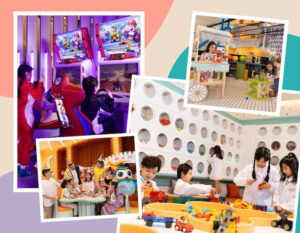
The greatest influence
Pre-school education is a big business in Hong Kong; children start their school life earlier than many other countries in the world. As an Early Years Teacher, I am obviously a big advocate for early education – it is now not just a luxury for some but a necessity to support children’s early development. However, studies have shown that the home learning environment can be every bit as important as access to pre-school education. As a parent; you are your child’s most important educator and parental support for learning can never be underestimated.
Here are seven ways you can support your child’s home learning environment to give them the best start in life and enhance their development as they head into their schooling life.
Read together
Having access to books increases your child’s vocabulary which gives them a great start in life. Reading fiction also improves brain connectivity and can support children’s empathy skills. When you read to your child, you are activating specific parts of their brain that develop their understanding of concepts and their memory. Reading is also a lovely opportunity to spend quality quiet time together.
Read more: Instil a Love for Reading in Your Child
Talk
There is nothing better for a child than exposure to language. One of the greatest educational divides occurs between children from poorer socio-economic backgrounds and more affluent children, who, on average hear up to three million less words by the time they are three. Hearing words is directly related to a child’s ability to learn words and so the more they hear the more they learn. You can talk to your child anywhere and at any time. Talk to them on the bus or in the car and describe the things you see around you, talk to them at home and explain tasks you’re engaged in – even seemingly mundane ones such as cooking can be interesting to a child.
Limit screen time
Talking and screen time often go hand in hand and this rule doesn’t just apply to your child – it also applies to you. Limiting your own time looking at your phone will increase the time you speak to your child. It’s easy to be on your phone as you wait at the bus stop or in the taxi queue. Put the phone away and talk to your child instead. The same applies to long journeys where whole families will often be staring at a screen rather than talking to another. Making meal times phone free will also make way for conversation opportunities.
Praise
Specific praise in genuine situations will improve your child’s self-esteem and boost their confidence. Praise should be heaped out in abundance to children, but praise should also be genuine. There will be plenty of opportunities to praise your child and you should take each and every one of them. There are concerns that children are growing up to be more narcissistic and self-involved and that parental praise can accentuate this. However a lack of praise can also equate to self-doubt and negativity. There is no doubt that it is a delicate balance and in many ways, there is no definitive right or wrong in terms of the amount of praise you should give your child.
Go on adventures
Education often happens outside of the classroom, in fact I have encountered many children who learn far better out-of-class situations. Day trips can offer so many educational opportunities for your child as they learn and discover more about the world around them. Hong Kong has so much to explore and even the logistics of getting to a new destination is a great learning experience. Involve your child in the plans and ask them to help you look at ferry timetable or route maps.
Read: 50 Things to do With Your Kids in Hong Kong
Liaise with school
It’s always helpful to know what your child is focusing on at school so that you can support them in exactly what they are learning. Schools will often send out newsletters or have communication diaries for you to read. Ask questions in these diaries and make sure you know what’s happening in class. Keep up to date on all the information that school passes on and read those emails. Attending parents’ evenings is also a straightforward way to keep in touch with what your child is learning. Helping with homework (for older children) will also ensure you know what topics they are covering and may give you ideas of things that you can do at home to support them.
Spend time together
Never underestimate the value of your presence in your child’s life. I know so many parents who worry constantly about their parenting and yet they’re all doing an incredible job by simply being present in their child’s life. If work takes you away a lot, then make sure the time you spend when you return is quality, child-led time. Even ten minutes a day playing with your child can boost their self-esteem and develop their language skills. They key is always quality and to focus on your child’s interests. By taking an interest, children will feel valued. Emotionally healthy children perform better in educational situations. There is no doubt that the pressure in school can be quite phenomenal and any foundations you lay to ultimately support this are so important.
 View All
View All










 View All
View All




 View All
View All


 View All
View All













